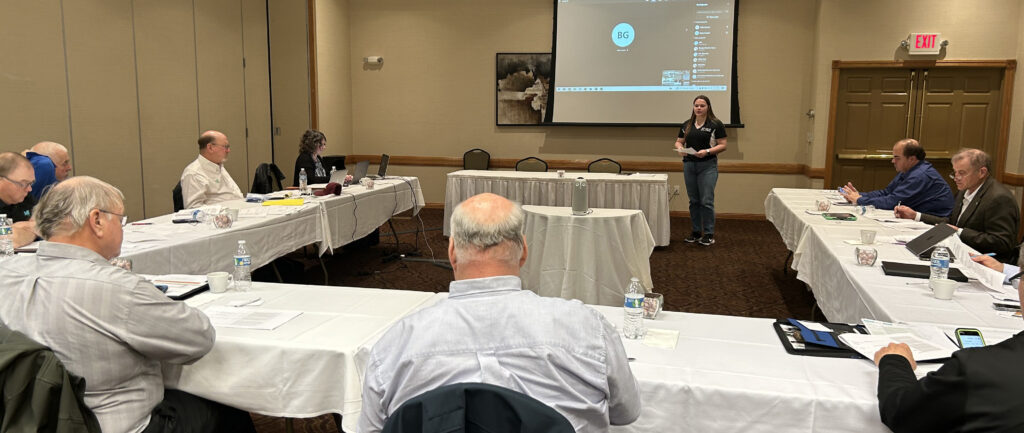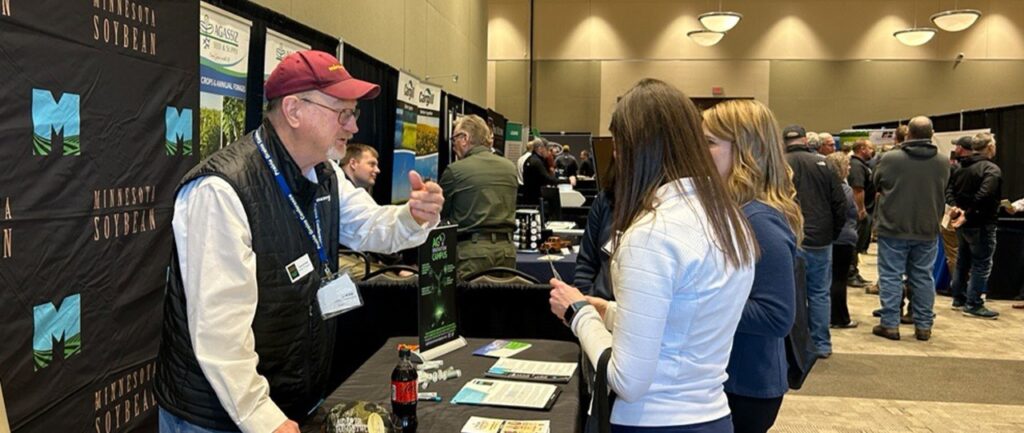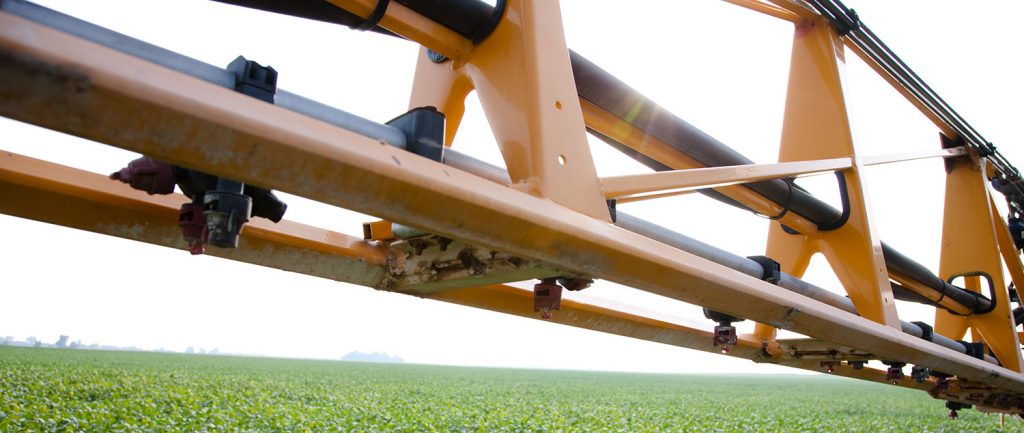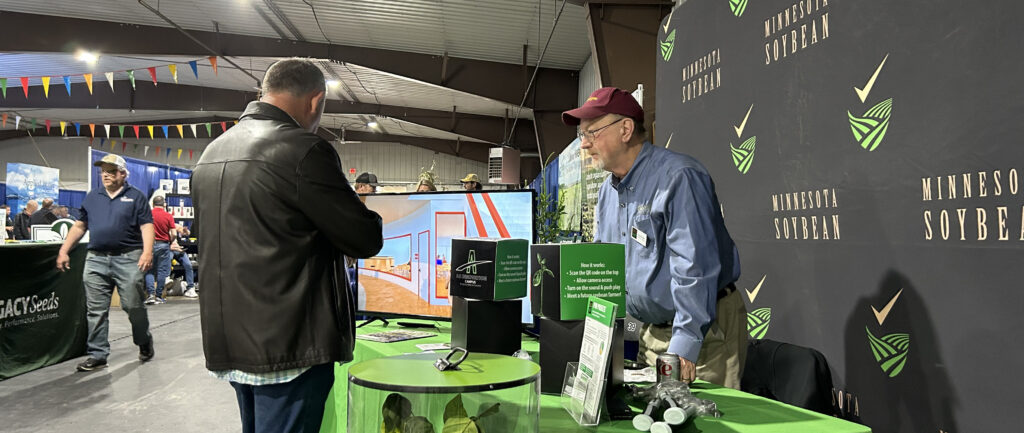For research professional Angie Peltier, checkoff funds are crucial in allowing her to advance her studies.
“Checkoff dollars are essential to my research,” says Peltier, a University of Minnesota assistant extension professor. “The support we receive from soybean farmers is critical to funding our research. We can’t do it without them.”
Her researcher peers share her appreciation.
“Checkoff resources have helped us make significant inroads in tackling pest management,” says UMN Soybean Entomologist Bob Koch, who’s worked with the Council on research devoted to combating aphids and the soybean gall midge. “We are grateful for the investments the Council makes toward facing these issues.”
In January, researchers met with the Minnesota Soybean Research & Promotion Council’s research action team at MSR&PC’s Mankato office to discuss with farmer leaders why their respective research proposals are worthy of funding in 2020.
“I always enjoy meeting with farmers and hearing about their research concerns and priorities heading into the growing season,” Peltier says. “The feedback we received is always welcomed and improves our process.”
As a result of the downturn in the agriculture economy, the Council embraced the challenge of doing more with less throughout 2020. The process began in August and September, when farmer leaders and Council Director of Research David Kee developed the Requests For Proposals (RFP), released the RFP request in October and gathered proposals until December. The action team evaluated and discussed the proposals in meetings and conference calls during the winter.
“We’re all farmers and pay into the soybean checkoff like everyone else,” says MSR&PC Director and research action team Chair Kris Folland. “We take the responsibility of reviewing these projects very seriously. We’re very cost-conscious and we demand that all these skilled researchers give us the most bang for our buck for research dollars.”
In total, MSR&PC farmer leaders reviewed about 26 projects and approved 14, including three in Breeding and Genetics; five in Pest Management; and six in Other Agronomy (cover crop management, nutrient management, etc.). The Council also approved financial support toward the North Central Soybean Research Program (NCSRP).
“They were all high-quality projects,” Kee says. “We selected the best of the best with the resources we have.”
This year, the Council approved a Southwest Minnesota State University project to cultivate the next generation of Certified Crop Advisers. SMSU’s faculty reported many students were having difficulties passing the exam, and reached out to the Council for guidance.
“With our discussion with SMSU, we advised them to do something that plays to their strength, which is teaching,” Kee says. “They’re going to modify their academic program to help their students take and pass the Certified Crop Advisors test. We want them to have the ability to produce the next group of crop advisors.”
With the projects approved by the action team, the Council reviewed and stamped its final approval on the research projects for 2020 during its April board meeting. Once the contracts are signed, the projects are initiated on May 1.
“We’re continuing to keep our eyes open,” Kee says. “We’re trying to network and leverage our resources as best as possible.”
Recommended FY2020 Research Projects
| Principle Investigator | Project Title |
| Breeding and Genetics | |
| Aaron Lorenz | Soybean Breeding and Genetics |
| Aaron Lorenz | Advancing Varietal Resistance to Soybean Cyst Nematode in Minnesota |
| Bob Stupar | New biotechnology to improve and understand soybean traits |
| Pest Management | |
| Andrew Lueck | Waterhemp Control from Soil Residual Herbicides in Micro-Rate Combinations |
| Angie Peltier | A New Approach to Managing White Mold in MN soybeans |
| Angie Peltier | 2020 NW Minnesota Soybean Research and Tech Transfer |
| Dean Malvick | Assessing Management Options and Inputs for Significant Soybean Diseases in Minnesota |
| Robert Lee Koch | Soybean insect management (2020): Soybean aphid and Japanese beetle |
| Other Agronomy | |
| Melissa Geiszler | Cover Crop Management in a Wheat-Soybean System in Northwest Minnesota |
| Melissa Geiszler | Green-Seeding Soybean into Rye in a Wheat-Soybean rotation in NW MN |
| Dan Kaiser | Nutrient Management for Profitable Soybean Production in Minnesota |
| Gerald Toland | SMSU Student Introduction to CCA Using Classroom and Field Education |
| MN Wheat (Dave Graftstrom) | Influence of Phosphorus and Potassium Applications in a Multi-year Spring Wheat-Soybean Crop Rotation |
| Seth Naeve | Wells Drainage site maintenance |








